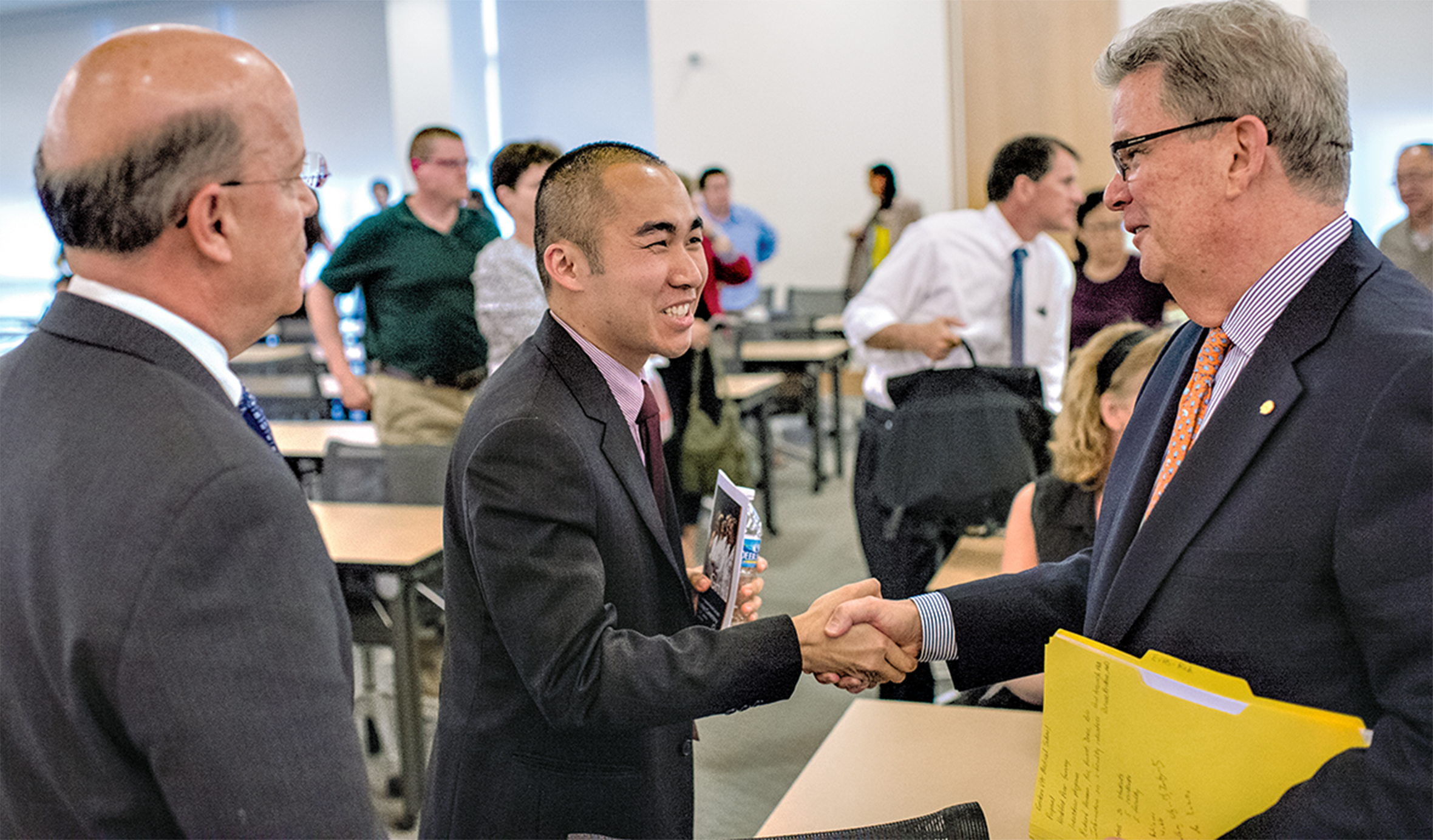
EVMS to CDC: Alumnus training as “Disease Detective”
Growing up, Eric Chow, MD, MPH, was fascinated by microbes. Their complex interactions with humans and the environment offered him a unique understanding of the role they play in medicine. It was this interest that eventually led him to work in public health with a focus on infectious diseases.
Dr. Chow (MPH ’10, MD ’13) was introduced to EVMS by a medical school counselor while he was an undergraduate student at Stanford University. After earning two degrees at EVMS, he completed a four-year residency in combined internal medicine and pediatrics at Brown University, where he also worked an additional year as the Pediatrics Chief Resident. But he says it was his public health degree and medical training from EVMS that sparked his interest in applying for an experiential service fellowship with the Centers for Disease Control and Prevention in Atlanta.
Dr. Chow currently works as an Epidemic Intelligence Service Officer in the Influenza Division at the CDC. The two-year program trains medical professionals and public health scientists to become “disease detectives” where each officer develops skills in applied epidemiology. In collaboration with local public health officials, the officers lead and investigate outbreaks of diseases. These experiences allow them to develop skill sets in interpreting epidemiological analyses and forging community partnerships to become future public health leaders.

While most of his research centers around influenza and other respiratory viral infections, Dr. Chow co-led both the investigation of the measles outbreak in Rockland County, New York, and the border health screening efforts as part of the Ebola response team in the Democratic Republic of the Congo in 2019 with local and international partners.
“I like that I get to work with people from different fields — people whom I would never have been able to work with if I were in the clinical realm,” Dr. Chow says. “And I like that I have the opportunity to do things that require different skill sets.”
In his spare time, Dr. Chow likes to cook and travel with his husband, who works as a marine biologist. The two traveled to Tasmania this past winter.
After Dr. Chow’s fellowship with the CDC wraps up in June, he’ll head to the University of Washington to be an adult infectious disease fellow. He then plans to jump back into public health and look for a position as a state Epidemiologist or Chief Medical Officer.